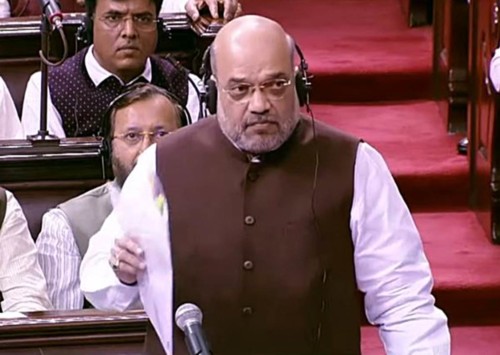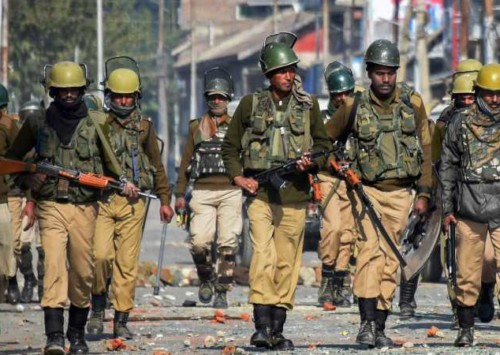Jammu and Kashmir: Caged and cut-off

The schools reopened but there were no students in most schools particularly private educational institutions
A fortnight after special status of Jammu and Kashmir was scrapped, the state- a flashpoint between arch rivals India and Pakistan that hit the global headlines, is conspicuously silent as well as caged and cut-off.
Coinciding with the abrogation of decades-old Article 370 of the Indian constitution that bestowed special status to Jammu and Kashmir since August 5, authorities have carried out a major crackdown and arrested high-profile figures that include three former chief ministers.
Who’s who of those detained and arrested include Farooq Abdullah, the 83 year old president of the National Conference, Kashmir’s oldest political party, and currently a member of India’s parliament in the prestigious Srinagar seat and his son Omar Abdullah 49, also former chief minister. Mehbooba Mufti 60, whose People’s Democratic Party (PDP) had an alliance with the BJP a few months back before Jammu and Kashmir was brought under central control, has also been detained in the official state guest.
Others include Shah Faesal 36, a topper in the prestigious Indian Administration Service Examination in 2010 and a role model for the young Kashmiris, Syed Ali Geelani 69 , a veteran Kashmiri separatist known for advocating the merger of the region with Pakistan, Umar Farooq 46, a seperatist and religious leader whose family is in the custodians of Srinagar’s largest Jamia Mosque, the nerve centre of clashes between protesters and security forces and lawyer Mian Abdul Qayoom 69, president of the Kashmir Bar Association. He has been moved to a jail in Agra, a city in north Indian state of Uttar Pradesh, globally known for its medieval magnificent ivory-white marble mausoleum, Taj Mahal.
If media reports are to be believed thousands have been arrested, detained while others have been confined to four walls of their homes. A new hope is dangling for those arrested. Jammu and Kashmir chief secretary BVR Subrahmanyam said, “Preventive detentions are being reviewed and appropriate decisions will be taken based on law and order assessments.”
Cut-off
Out of the nearly 99,000 landline phones, over 73,000 were functional across Jammu and Kashmir. However, mobile services and internet remained suspended for the 16th consecutive day, while landline telephone services in many areas also remained affected.
All necessary arrangements for the reopening of primary schools in the Valley have been made. However, there were no students in most schools, particularly private educational institutions.
The civil secretariat, the seat of the Jammu and Kashmir government, witnessed about 98 pc attendance. Asserting there was adequate stock of essential commodities, Rohit Kansal, government spokesperson appealed to people to not resort to panic buying.
Converting it into Palestine
Communist Party of India Marxist (CPIM) general secretary Sitaram Yechury alleged said that the Indian government is trying to convert Kashmir into India’s Palestine by removing article 370.
Addressing an event held at AK Gopalan Center for Research and Studies in Thiruvananthapuram, a city in the southern Indian state of Kerala, Yechury said all secular democratic parties in the country will organise protests on August 22 demanding release of political prisoners in Jammu and Kashmir.
Global meddling
Peeved at India’s move Pakistan is internationalising the Kashmir issue. Last week the United Nations Security Council (UNSC) held a closed door meeting to discuss the Kashmir situation after Pakistan wrote a letter to the UN, seeking the world body’s intervention. The last time Kashmir was on the UNSC agenda was in 1965. And since 1971, India and Pakistan as a subject have not figured at the UNSC.
Now Pakistan has decided that it would take the Kashmir dispute with India to International Court of Justice (ICJ).
During last fortnight India was engaged in hectic diplomacy briefing all 15 members of the UNSC – five permanent and 10 non-permanent members- in New Delhi, New York as well as in their respective capitals.
For its part India has been invoking Simla Agreement and Lahore Declaration to resist attempts by Pakistan to internationalise the bilateral dispute over Kashmir and raise it at the UN General Assembly or the Security Council.
But the issue is when will normalcy return and lead the valley towards a new dawn of development, peace and prosperity?











